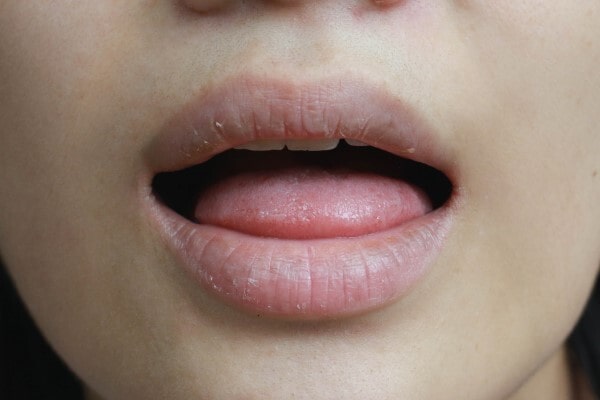
What is Dry Mouth?
Dry Mouth or Dry Mouth Syndrome refers to a condition where you have a reduced or non-existent saliva production. Also referred to as Xerostomia, it can be as mild as a dry sensation eased by drinking water to a severe condition impacting your quality of life.
What Causes Dry Mouth?
Causes can include;
-
Dehydration
-
Chewing tobacco, smoking or using drugs such as methamphetamines or marijuana
-
Snoring
-
Anxiety or stress
-
Alcohol or soft drink consumption
-
Eating disorders such as Anorexia Nervosa or bulimia
-
Side effects of medicines, including over the counter and prescriptions
-
Chemotherapy or Radiotherapy of the head and neck
-
Conditions such as diabetes, stroke, yeast infection, Alzheimer’s disease or nerve damage especially to the head or neck, Sjogren’s syndrome, lupus, Hepatitis C or rheumatoid arthritis.
-
Anxiety or stress
What are the symptoms of a Dry Mouth?
While this might seem obvious the main symptom of a dry mouth, is of course, a dry mouth. However, it does not stop there. Depending on the severity and the cause symptoms can range from mild to debilitating. Those with more severe symptoms will find it hard to eat, speak or swallow. This can lead to more complicated problems such as malnutrition or problems with the mouth throat and teeth.
Other symptoms include;
-
Saliva that feels thick and looks stringy
-
Dry, tingling or burning sensation of the tongue or mouth
-
A sore throat that can be consistent or pain on swallowing
-
A hoarse voice or a cough
-
Feeling thirsty or needing more liquids to help with swallowing
-
Changes to the sense of taste and bad breath
-
Dry or cracked lips, dry eyes, nose or corners of the mouth
-
Mouth ulcers
-
White patches in the mouth (yeast infection)
-
Bleeding gums
-
Tooth decay
What are the oral problems arising from a dry mouth?
Saliva is the body’s natural defence against tooth decay and protection of the soft tissues. From washing away food debris, helping control plaque levels, neutralising acids produced but food, drinks and bacteria. To Lubricating the soft tissues inside the mouth such the inside of the cheeks, and lips and acting as a vehicle to distribute minerals such as fluoride and calcium which protect and strengthen teeth.
Without saliva (or with pour saliva) the teeth very quickly can be affected by the bacteria that are produced by the trapped food debris and raised plaque levels. Resulting in tooth decay and gum disease. Without the lubricating action of saliva we can see a raw, red and sore lining of the mouth with dry cracked lips.
Use of fluoride products can also be less effective. Without that vehicle to activate and deliver the fluoride much of the minerals are simply not distributed where they need to be. This coupled with the increase chance of bacteria accumulating leads to a perfect environment for rampant tooth decay.
What are the treatments for dry mouth?
Treatments for dry mouth will depend on the cause, reducing caffeine and soft drinks, quitting smoking and speaking to your GP about any changes in medication can help. As can staying hydrated with water or addressing other health conditions such as diabetes, stress, anxiety or even snoring.
If you are unable to remove the cause of the dry mouth, or it is a medical condition then there are different options to help either stimulate saliva or supply an alternative. Increased sipping of water, a dry mouth spray or chewing sugar free gum can alleviate symptoms and work on increasing saliva production. While avoiding foods that irritate your mouth, such as citrus foods, spicy foods, foods with sharp edges like crackers or chips, or alcohol can help ease discomfort in the mouth.
Your dental professional will often recommend higher strength fluoride products, saliva replacement sprays, mouth rinses, toothpastes that have milder flavours and increased oral hygiene appointments.
These higher fluoride products increase the amount of available fluoride available to the surfaces of the teeth and give a longer lasting protection. Dry mouth sprays and ointments can help stimulate some of your own saliva production, protect the soft tissue in the mouth and also help clear debris from the mouth. Milder flavoured toothpastes can be more comfortable to use if the tissues in the mouth are irritated.
If this sounds like something that you may experience then it is a good idea to discuss with your dentist or hygienist so a plan can be made to protect your teeth and gums as quickly as possible.



